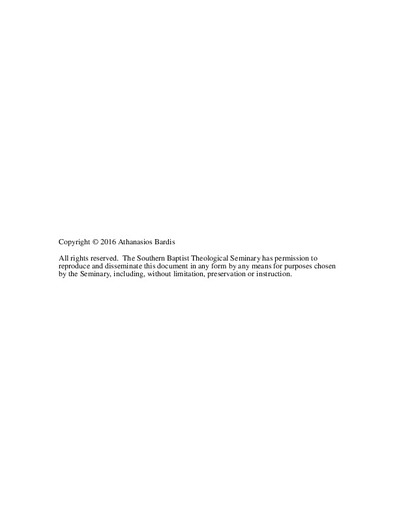An Evangelical Critique of the Greek Orthodox Doctrine of Deification
Abstract
This thesis examines and critiques from an evangelical perspective, the Greek Orthodox soteriological doctrine of theosis. In view of many exegetical and theological considerations, the thesis determines that the Eastern/Greek Orthodox doctrine of theosis overemphasizes and misconceives while distorting a doctrine of glorification by making it the regulatory soteriological factor through semi-Pelagianism, mysticism, sacramentalism, and excessive apophaticism. Chapter 1 presents an overview of the theological terrain of theosis and sets the context and direction of the paper. Chapter 2 traces the cosmological and anthropological foundations of theosis and the resulting ontological dependence, semi-Pelagianism, and synergism toward deification. Chapter 3 examines the excessive theological apophaticism of theosis, the essence/energies distinction, the germinating mystical approach, and the restrain of the role of the written revelation in the knowledge of God. Chapter 4 defines and explains the nature and function of defying grace in theosis in a context of hesychast spirituality, sacramentalism, and moralism. This chapter also emphasizes the foundation of theosis upon a dangerous extrapolation and misuse of the Chalcedonian definition regarding the union of the human and divine natures of Christ. Chapter 5 further questions theosis as a legitimate motif of salvation as it exposes its dangerous repercussions as well as how it confuses the ordo salutis.

